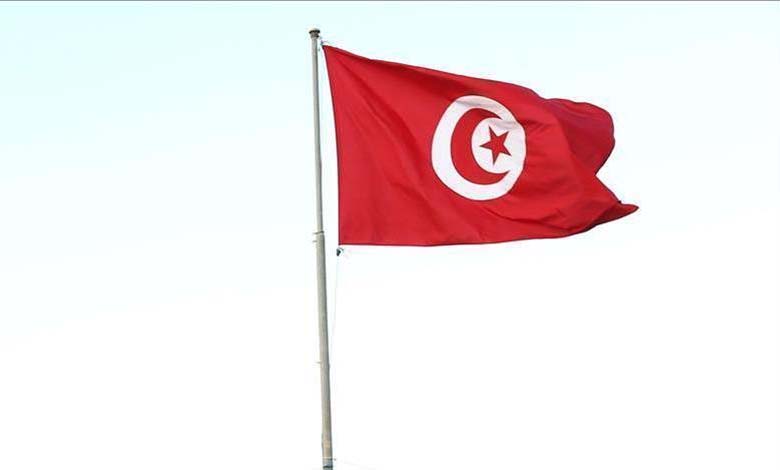European warnings of a scenario where Tunisia defaults on its debt

Claudia Gazzini, Senior Analyst at the International Crisis Group, called on the international community to prepare for a scenario in which Tunisia defaults on its debt. She urged taking emergency financing measures to mitigate its impact on Europe, especially since President Kais Saied, in her belief, would not accept any agreement with the International Monetary Fund or the European Commission.
Gazzini’s statements reflect Europe’s concerns that the Tunisian economy could collapse, leading to waves of Tunisian and African (sub-Saharan) mass migration to Europe, amidst the economic crisis facing the North African country and the logistical equipment’s deterioration to control migrant flows.
During a hearing before the Foreign Affairs and Defense Committee of the Italian Senate on Tuesday, Gazzini stated that the international community should be prepared for a scenario where Tunisia defaults on its payments. She warned that this would have “significant social and economic consequences” and “serious political and security implications,” according to the Italian news agency Nova.
She added, “The economic collapse in Tunisia may not only lead to an increase in irregular migration to Europe but also intensify smuggling through Libya or Algeria and fuel parallel exchange rates and the black market.”
Gazzini affirmed that “the political and security implications could be even more dangerous in terms of the risks of attacks, violent incidents, and an increase in criminal activity. For this reason, the international community must implement a flexible policy regarding the negotiations between Tunisia and the International Monetary Fund to allow for a potential review of the agreement while preparing for the scenario of default.”
Tunisia is burdened with debt, accounting for about 80% of its Gross Domestic Product. Since October, Tunisia reached an expert agreement with the International Monetary Fund for a phased $1.9 billion financial rescue plan. However, the talks stalled as President Kais Saied deemed the loan conditions unfair and feared they could lead to deadly social unrest as they affect vulnerable popular groups.
The International Monetary Fund is imposing a set of conditions in exchange for the loan, including lifting subsidies on fuel and essential food items, reducing the wage bill in the public sector, and disposing of some state-owned struggling institutions.
Gazzini indicated that “in the case of default, preparations must be made to provide emergency financing measures to mitigate its impact.” She expressed concern about “the growing ideological and anti-Western Arab tendencies toward the Tunisian presidency.”
She continued, “Fortunately, the possibility of reviewing the agreement with the International Monetary Fund has emerged,” and “it is also positive that Tunisia has agreed to negotiate with the European Commission.” However, “it would be illusory to believe that Tunisia will finally accept an agreement after several negotiations, whether with the International Monetary Fund or with the Commission.”
She speculated that President Kais Saied “may deliberately choose to default for ideological reasons.” She added, “On the other hand, European capitals need to coordinate their positions with Algeria, the African Union, and other regional organizations (such as the Arab League), which can act as mediators with Tunisia.”
Tunisia has not yet made a final decision regarding the agreement presented by the European Union, as it postponed signing the memorandum of understanding with the bloc concerning irregular migration, requesting more time to analyze the agreement.
The offer was announced on June 11 during a visit to Tunisia by President of the European Commission, Ursula von der Leyen, Italian Prime Minister, Giorgia Meloni, and Dutch Prime Minister, Mark Rutte.
European assistance is partly linked to ongoing negotiations between the International Monetary Fund and Tunisia to provide the latter with a conditional loan of $2 billion. However, President Saied has repeatedly affirmed that Tunisia will not be Europe’s border guard and will not comply with the dictates of the Fund.
Italian Prime Minister Giorgia Meloni denied having asked the Tunisian President for her country to play the role of “border policeman” to curb the flow of migrants towards European coasts.
The European Union intends to provide Tunisia with boats, mobile radars, cameras, and vehicles by late summer to assist in enhancing its border control on land and at sea. It also proposes to enhance cooperation in the areas of police and judiciary to combat smuggling networks, in addition to facilitating the return of Tunisians residing illegally in Europe to their home country.
The European Union funds the voluntary return of migrants from sub-Saharan Africa through Tunisia to their home countries. According to the European Commission, the bloc has funded 407 such operations so far this year.
Tunisia often witnesses attempts at irregular migration by individuals, mostly from sub-Saharan African countries, towards Europe. Most of these individuals use the maritime route from Tunisian shores to the continent, taking advantage of the short distance, which does not exceed 150 kilometers in some areas, between Tunisia and the Italian island of Lampedusa.
Last Sunday, Tunisian authorities announced the foiling of 65 cases of irregular migration and the apprehension of 2,068 people attempting to sail to Europe across the Mediterranean Sea during the Eid al-Adha holiday. This is part of Tunisia’s ongoing efforts to combat irregular migration.
In recent times, Tunisia has seen a significant increase in irregular migration to Europe, particularly towards the coasts of Italy, in the aftermath of economic and political crises in the country and other African nations.
This year has witnessed record numbers of migrants departing from Tunisian shores alongside the drowning of around 600 people at sea, according to unofficial statistics.
Illegal migration activities peak in the summer due to favorable weather conditions.
The Mediterranean Sea is considered the most dangerous migration route in the world, with more than 20,000 people losing their lives attempting to cross it since 2014, according to the International Organization for Migration.
The Italian side has seen a noticeable increase in the number of irregular migrants arriving on its shores. Recent data from the Italian Ministry of Interior confirms that a total of 34,761 people have reached Italy by boat from Tunisian coasts since the beginning of the year until July 4, at an average of about 190 arrivals per day. This represents a 455% increase compared to 6,371 arrivals during the same period last year.
The data also indicates that the number of arrivals from Tunisia since the beginning of the year has exceeded the total estimated number of 32,101 arrivals through the same migration route throughout the previous year. Furthermore, about 2,000 people have arrived from Libya in the past two weeks, while around 7,000 people have arrived from Tunisia.
780 people have lost their lives and 944 are still missing in attempts at irregular migration to European coasts via the Central Mediterranean route (including both Libya and Tunisia).
The central Mediterranean, the waters between Italy and North Africa, is the deadliest migration route in the world, with over 20,000 people losing their lives while attempting to cross it since 2014, according to the International Organization for Migration.












